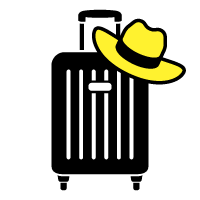Marriott CEO: We Want '100% of Your Travel Wallet'

Skift Take

Leaders of Travel: Skift C-Suite Series
What are the top trends impacting hotels, airlines, and online bookings? We speak to the executives shaping the future of travel.Marriott International's CEO and president, Anthony Capuano, who took the helm in 2021, initially had to help guide the company through the pandemic and a boisterous travel recovery. Now the long-term strategy is taking shape.
In a wide-ranging exclusive interview at the Americas Lodging Investment Summit in Los Angeles, Capuano laid out a vision for the hospitality giant: To capture every aspect of customers' travel spending, from midscale hotels to luxury safaris.
"We want to capture as close to 100% of your travel wallet as possible," Capuano said.
Capuano also revealed how the hospitality giant is attempting to shed its bureaucratic weight while simultaneously extending its reach into new corners of the travel industry.
Capuano said Marriott's strategy is already showing results, with the company achieving record growth in 2024 — including 6.8% net rooms growth on what was already the industry's largest portfolio.
Capuano hinted at how the hospitality giant would shift how it told its story. The CEO also gave some tips on how to pitch ideas to him effectively.
Marriott CEO and President Anthony Capuano will be speaking at Skift India Forum in Delhi-NCR on March 17-18.
Beyond Traditional Hotels
What is shaping up to be the signature of Marriott's strategy since Capuano became CEO in 2021 has been the company's push beyond conventional hospitality.
"We will continue to look for opportunities to meet the need for every trip purpose of our guests and members," Capuano explained. This expansion has recently included:
- Safari experiences, including the J.W. Marriott Masai Mara that opened last year.
- A new outdoor collection with new brands was added in December: Postcard Cabins and Trailborn. About 70% of the customers for these cabins are women, such as those going on girl getaways.
- The Ritz-Carlton Yacht Collection for luxury sailings now has two vessels.
- Midscale hotel offerings through City Express and StudioRes brands, which debuted under Capuano.
- Marriott's team has also accelerated the expansion of vacation homes and rentals under the Marriott Homes and Villas brand, which was only about 2,000 in 2019 and grew to over 160,000 last year.
Breaking Records in Development
Capuano is most judged on Wall Street by his ability to sustain Marriott's pace of growth, which was already fast last year.
"I worry they're going to put a 'net rooms growth' figure on my tombstone," Capuano joked.
Fortunately for Capuano, Marriott broke development records last year.
"We opened a record 123,000 gross rooms during the calendar year 2024," Capuano said. "We also did roughly three deals a day, which represented about 162,000 rooms of signings."
The continued quick pace of growth came despite the company's large size.
"We delivered 6.8% net unit growth on what was, by a wide margin, the biggest denominator in the hospitality industry," Capuano said. He noted that its global hotel development pipeline is approaching 580,000 rooms.
Regaining Marriott's Agility
Marriott's recent restructuring — a roughly 16% cut in corporate staffing at its Bethesda headquarters and additional cuts elsewhere — came after its multi-year growth spurt.
Capuano told investment analysts in November that the move would deliver over $90 million a year in savings. But in an interview, he elaborated on the broader rationale behind the move.
Over roughly a decade, Marriott had more than doubled in size, dramatically expanded its brand portfolio, and more than doubled the number of countries and territories in which it operates.
Capuano said such recent growth necessitated a fundamental shift in how the company adapts to new realities. All large organizations are subject to forces that slow them down and become more bureaucratic as they scale, so leaders must continually drive for speed and agility.
Empowering Leaders
The CEO emphasized a key philosophical shift: moving decision-making power away from corporate headquarters in Bethesda, Maryland, and into the hands of regional leaders. This change particularly affects Marriott's operations in international markets.
"We should have our India team based in Gurgaon — having grown up in that set of markets, having worked in Taj and Oberoi, knowing all the players and how business gets conducted locally — they should be making local market decisions," Capuano said.
Capuano shared an anecdote about a meeting with Antonio Catalan, a partner in AC Hotels. When Catalan expressed interest in various initiatives, Satya Anand, who runs Marriott's Europe, Middle East, and Africa business, was empowered by Marriott's new structure to make immediate decisions without needing headquarters' involvement.
"The level of empowerment is both an opportunity and a responsibility," Capuano said. "Our leaders can't be reckless or cavalier. But they shouldn't be timid either. They should also be confident that essentially we have their back."
Capuano candidly admitted that the reorganization wasn't perfect.
'We absolutely didn't get it all right," he said. "We almost certainly — given the pace of change — made a few mistakes. We've all got to acknowledge that."
Shining a Spotlight on Guest Experience
Marriott is developing new efforts to highlight its guest-centric approach, which focused on guest satisfaction and employee well-being.
"We've got some ideas that we're tossing around that will give more visibility into all the amazing associates and all of the amazing workstreams that exist today that are singularly focused on the guest experience," the CEO said.
Capuano acknowledged that because he spent over 20 years of his career on the development side of the business, people often assume his priority is property owners.
However, he pushed back against this perception. While property owners are important stakeholders, Capuano sees Marriott's mission as serving multiple constituencies simultaneously — associates (employees), guests, and owners — rather than prioritizing any single one.
"I've tried to dissuade people [from that view]," he explained, "and often the way I do that is to talk about the proverbial 'Rubik's Cube' on my desk every day."
"Every decision of consequence we make is through the lens of simultaneously how it's going to impact our associates, our owners, and, ultimately, how it will impact our reputation and the work we're doing to ensure our guests are satisfied."
Getting Luxury Right
Marriott's approach to luxury hotels is roughly parallel to what United and Delta have recently been doing in the airline segment. Rather than just offering beds for the night or seats on a plane, they're trying to offer product differentiation, de-commoditizing the experience for travelers.
The goals are to enhance pricing power and gain an enduring advantage in brand loyalty.
Marriott boasts that it has the largest luxury portfolio, with 658 open luxury hotels globally and another 266 in the pipeline.
"It's a priority that we lengthen our lead in luxury," Capuano said. But he emphasized that "leadership is really not going to be about absolute numbers necessarily. It's going to be about execution in product and service."
To that point, in 2023, Capuano created the position of "president of luxury" and promoted Tina Edmundson to the role.
"I believe luxury is not better or worse than any other tier we operate, but it is absolutely distinct," Capuano said. "It is more bespoke in every facet, and it requires a level of fluency in architecture, design, food and beverage uniforms, staffing, training, and so on. That's why we need someone who, from the moment she wakes up till the moment she goes to sleep, is singularly focused on developing that focus and fluency."
Fine-Tuning Brands
Another of Capuano's ambitions is to bring additional clarity to Marriott's brand portfolio.
"I've said repeatedly that our overarching strategy is to have a broad and diverse portfolio of brands, but among our responsibilities is to make sure that each of those 30-plus brands enjoys a very distinct, well-articulated positioning for the consumer."
"For the owner community, I often say to our teams, I give us a grade of 'incomplete.'"
"I think we have achieved [well-articulated, distinct brand positioning] with the vast majority of the brands in the portfolio, and perhaps the sector where we've done the best job is the luxury sector," Capuano said.
For each of Marriott's brands, from affordable midscale through luxury, Capuano said, guests need to feel they're getting the best service and the best tangible product in keeping with the brand's promise and price.
He expects the company to do more to promote its keen focus on both product and service.
"Whether our guests are lifetime titanium [status members in the loyalty program] or first-time customers, we are incorporating their very valuable feedback into our decision-making about product and service," the CEO said. "I don't think that gets the attention that it deserves [when people talk about the company]."
The Power of Loyalty
With 219 million members as of Q3 2024, Marriott's loyalty program Bonvoy is expanding beyond traditional hotel stays to include partnerships with companies like Starbucks, offering members more immediate gratification options for their points.
Capuano has led an investment in hundreds of millions of dollars in back-end technology. One fruit of that effort will be an enhanced experience for loyalty program members to see what the company offers.
Guests will be able to more easily search across the company's offerings — from mountain resorts to beach resorts, outdoor cabins, and safari lodges — through Bonvoy.
Keep PowerPoint to a Minimum
Skift asked Capuano a few questions to understand his leadership style and what he expects from deputies and colleagues.
"I don't like voluminous PowerPoints," Capuano said. "Yes, sometimes there are very complex technical issues where having a deck is critical. But generally, I prefer those to be pre-reads and then a discussion. I don't want me or any of my leadership team to sit in a meeting for an hour clicking through slides."
Capuano said David Marriott, board chairman, has the same approach to board meetings.
Another Capuano hallmark is taking a team approach. In interviews, he has been at pains to emphasize that Marriott's strategy derives from the full senior leadership acting in consultation with a board and heeding the long-time principles and values of the Marriott family.
For instance, Capuano credited other senior leaders, such as Leeny Oberg, chief financial officer, for boosting the pace of hotel development, overseeing the company's tech transformation, and evolving the loyalty program, among other crucial tasks.
Remembering the Core Mission
Marriott's response to the recent Los Angeles fires reminded Capuano of Marriott's mission as a hospitality company.
With 30,000 associates in the greater Los Angeles area and 565 hotels in California, the company responded in several ways.
One effort provided about 300 rooms for firefighters from other states.
"There's a great video clip of them arriving in all of their gear at about 9 at night, walking through the lobby of the J.W. to a standing ovation of our guests and our associates," Capuano said with emotion.
Accommodations Sector Stock Index Performance Year-to-Date
What am I looking at? The performance of hotels and short-term rental sector stocks within the ST200. The index includes companies publicly traded across global markets, including international and regional hotel brands, hotel REITs, hotel management companies, alternative accommodations, and timeshares.
The Skift Travel 200 (ST200) combines the financial performance of nearly 200 travel companies worth more than a trillion dollars into a single number. See more hotels and short-term rental financial sector performance.





